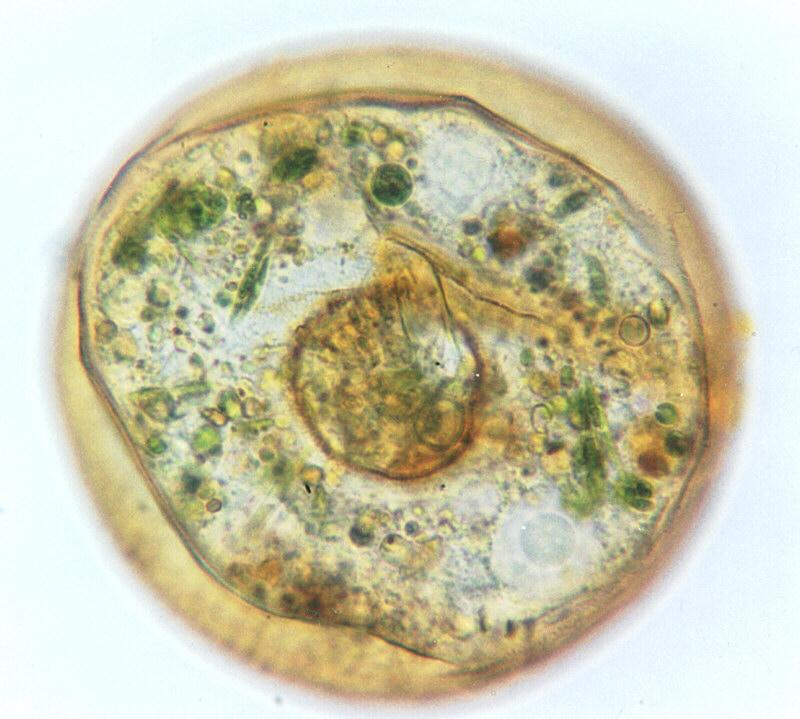|
| Query: protozoa | Result: 10th of 36 | |
Protozoa series - REPOST #10 - Arcella - new scans coming soon
| Subject: | Protozoa series - REPOST #10 - Arcella - new scans coming soon
| | Poster: | Schmode (schmode@vossnet.de)
| |

| File size : 74881 bytes
File date : 2001:01:26 17:54:00
Resolution: 800x719
Jpeg process : Baseline
Posted Newsgroups: alt.binaries.pictures.animals
Posted Date: Wed, 29 Jul 1998 23:23:23 +0200 |
Protozoa series - REPOST #10 - Arcella - new scans coming soon
Hi again,
the colourful organism pictured here is an Arcella.
I already showed you some amoebae in one of my very first postings. When
you remember that one you'll probably find it hard to believe that this,
too, is an amoeba.
Evolution has been hard for amoebae. Most protozoa appearing later in
this process have been faster, more versatile, more aggressive.
Turtles have had the same problem. They managed to survive because
evolution provided them with a solid shell. Some amoebae went the same
way; the result can be seen here. The brownish circle covering the
organism is a half-spherical shell made of silicic acid. In this shot
the microscope is focused to the bottom of the organism making the shell
almost transparent, thus clearly showing the protoplasma; I'll show you
another shot later which tells more about the structure of the shell.
The small inner circle with the dark-brown border is the "outlet" of the
shell located at its bottom; Arcella can completely retract itself into
it if needed. It is usually about 1/300 inch in size being one of the
smaller amoebae. The colourless spot in the left lower half is the
nucleus. You can see that this Arcella is in good feeding condition; the
green spots are algae being had for dinner.
Maybe that makes up the fascination of watching protozoa; whenever you
see them you will usually find them eating or being eaten. By the way,
there is an amoeba called Naegleria which has quite mean feeding habits;
living in tropical freshwater it has a strong desire for human brain
which it invades through the nose of humans taking a bath in its
habitat. The result is a serious form of encephalitis with a very high
mortality rate.
You should probably keep that in your head when taking a bath in
tropical waters :-)
More soon,
Ralf
name="Arcella.jpg" |
^o^
Animal Pictures Archive for smart phones
^o^
|
|

